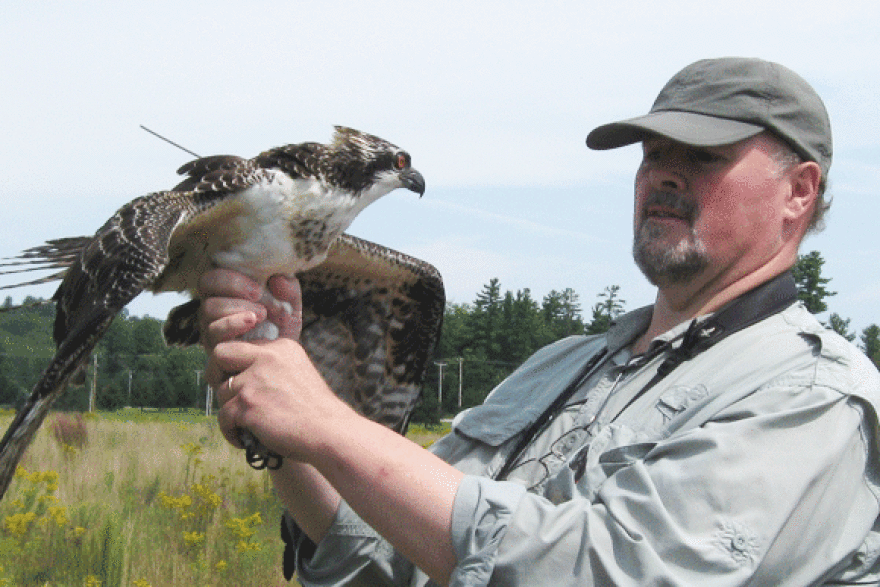
At Something Wild we like to talk about some of the interesting wildlife or natural occurrences you can find in New Hampshire. We hope you learn a little something wild along the way; sometimes that’s birds and bees, sometimes that’s flowers and trees, but today we want to talk about that thing called love.
Biophilia is an idea popularized by American ecologist and philosopher E.O. Wilson. He suggested that humans have an instinctive bond to other living creatures – that we’re innately attracted to nature. We have it at Something Wild! And there’s almost certainly a higher rate of it among folks living in this state of granite than in other places in the country.
But this sense of biophilia is particularly acute among people in the profession. Over the years, we’ve spoken to ornithologists (birds), dendrologists (trees), meteorologists (weather), ichthyologists (fish) – lots of different “-ologists” and we’ve noticed a theme among them when we’ve broached this topic: they were all bitten by this particular love bug at an early age.
So we call this periodic series “First Bitten,” talking to folks about how and when they first discovered the natural world. Emily Preston has always loved animals and nature. Preston is a wildlife biologist with New Hampshire Fish and Game, and our next contestant. It’s been a life-long love for her, and that very first spark came, “when I was a child my parents were involved with a lot of other people in the creation of the Squam Lakes Natural Science Center.”

“So I started hanging out there when it opened. And when I was twelve I started volunteering. We were the first kid volunteers, and I got to do all sorts of cool things: help feed the animals, help hold animals during programs. What is better for a kid than having a red tailed hawk sitting on their fist? It was an amazing experience I learned a ton, and I've been hanging out there ever since.”
Preston said it was more than simply being around the animals that sparked her biophilia…learning about these creatures was just as important, because, “you can't love something that you don't know anything about.”
Speaking of hanging around Squam Lake, we also spoke with Iain MacLeod, who does a lot of that as Director of Squam Lakes Natural Science Center. From an early age he was fascinated by raptors.
It started in his boyhood home in Scotland. “My mom and dad were taking my older brother and I around to the historic sites of Scotland. We stopped at this place called Loch Garten which is the most famous Osprey nest in Scotland. Ospreys have had a very checkered past in Scotland they'd been wiped out by Victorian egg collectors, and finally a population started to settle in parts of Scotland but it was really because of this pair at Lock Garten.

“I just remember walking down this trail in this beautiful pine wood.” As he peered thorugh a pair of binoculars, “I remember seeing this big pile of sticks. I had no idea that this was a nest. I was curious what it was why everyone was so excited about this thing and then all of a sudden somebody said, ‘Here comes the male.’ All of a sudden this male Osprey flew in with this glistening rainbow trout in his talons.”
It’s an image that has stuck with him, “I've spent thousands of hours watching Ospreys but I can still see that moment that I saw the first Osprey. I just was absolutely hooked I thought this is amazing I've never seen any like this in my life. And that was really when I became a birder and began that passion that's been my passion ever since.”
Share your first bitten story below in the comments, shoot us an email sometyhingwild@nhpr.org, or post it in Facebook #FirstBitten.









